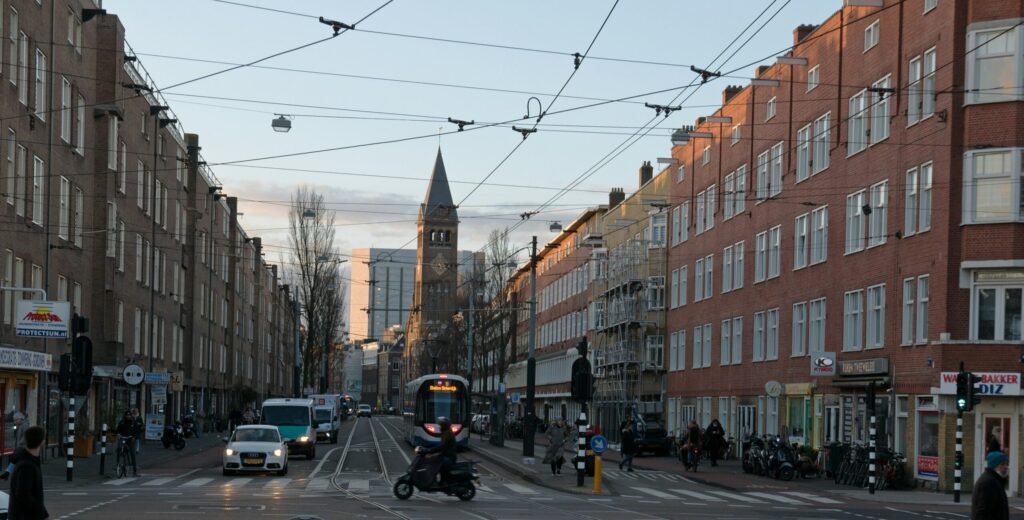Housing affordability in a monetary economy An agent-based model of the Dutch housing market
This paper is motivated by the global housing affordability crisis. Housing shortages in monetary economies are defined by affordability, which is the balance between money (income and borrowing) to access housing and the price (purchase prices and rents) that provides access. This balance is governed by real variables (demography and housing supply) and by monetary and financial variables (interest rates, mortgage debt subsidies, and loan-to-value norms). We study the trade-offs between policies addressing real and financial causes of affordability dynamics.
We use a heterogeneous-agent housing market model calibrated to the Netherlands. We find that a 10% reduction in the peak house price level is achieved by reducing the bank’s loan-to-value cap from 96.9% to 93.3%, or by increasing the interest rate from 4.0% to 5.4%, or by increasing the ratio of private properties to households from 69% to 74%. This corresponds to building 420,000 housing units, an effort that faces substantial political, regulatory, and capacity constraints. Higher-income inequality weakens the benefits of more construction for first-time buyers, as more of the housing stock is bought as a second home or by buy-to-let investors.

Also Read: Exploring Perceptions of Flexwonen: Benefits and Challenges in the Dutch Housing Market
